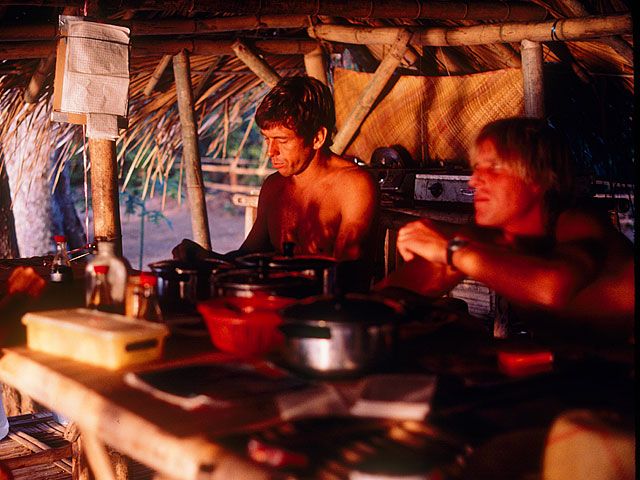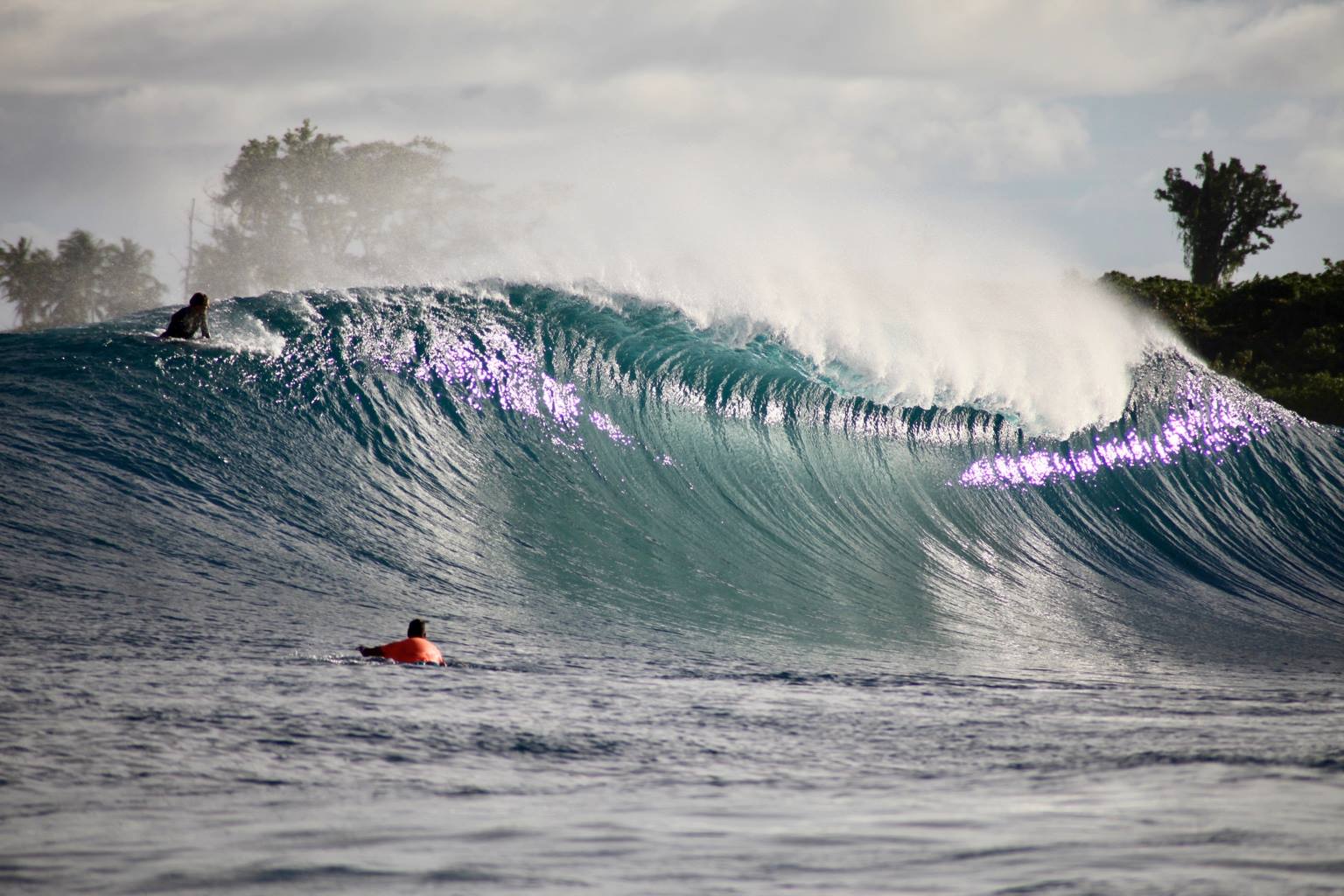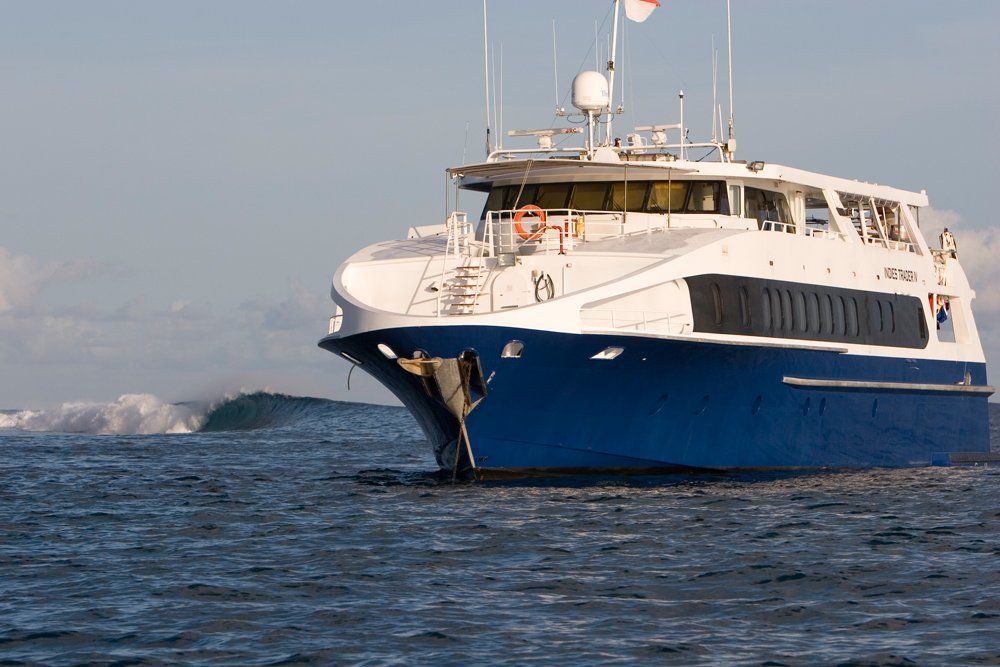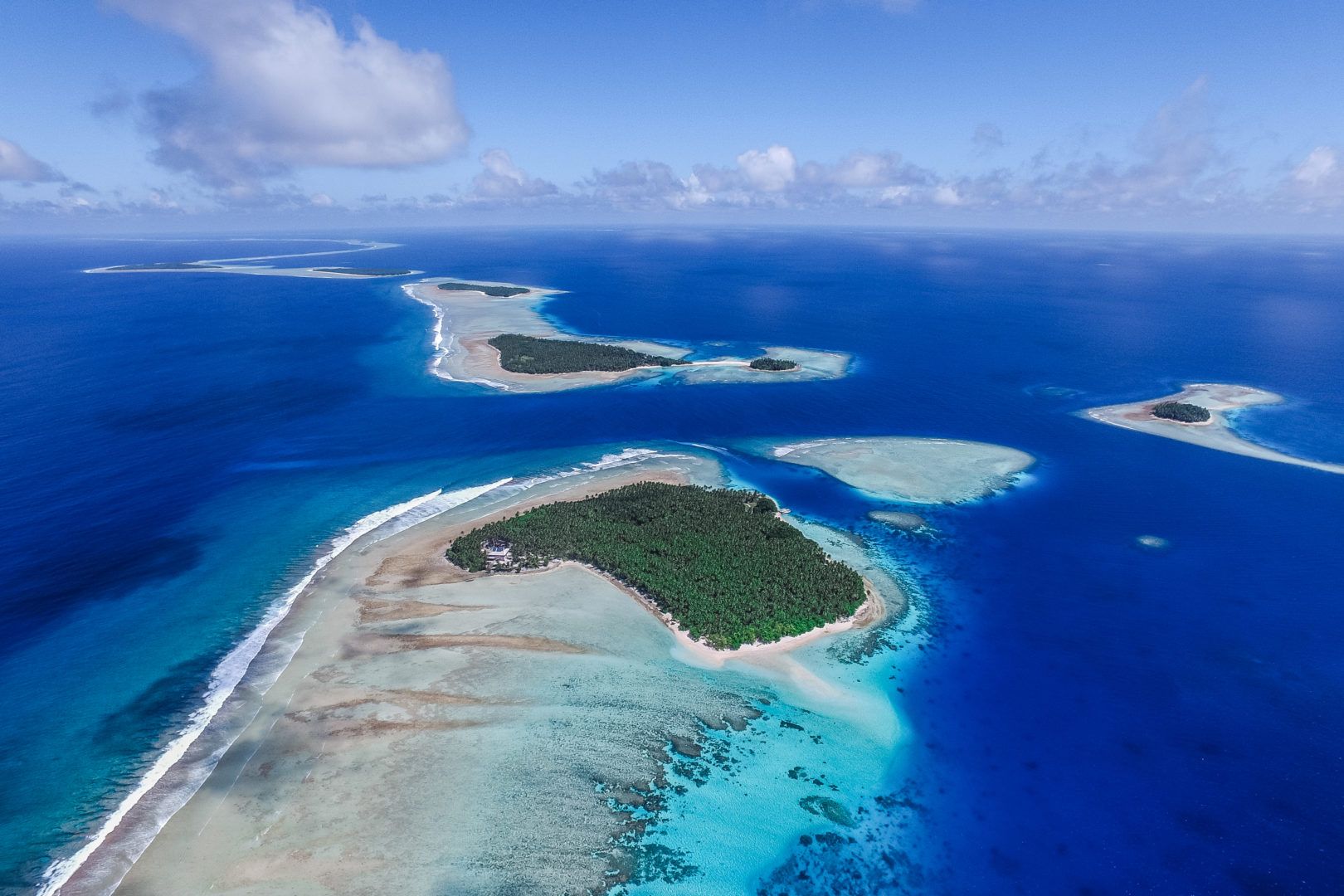In his teens and early 20s, Martin Daly moved from New Zealand to the Philippines to Singapore to Bali, mostly working as a commercial diver for oil companies. In 1983, he and a group of friends began exploring the smaller islands along the Indonesian chain, in a 60-foot salvage boat borrowed from Daly's boss.
By the end of the decade, back in Australia, having bought the salvage boat and refurbished it as the Indies Trader, Daly had earned an underground reputation as the man who knew where Indonesia's best secret breaks were hidden.
In 1991, Daly took on his first pro surfer charter, ferrying Tom Carroll, Ross Clark Jones and Martin Potter out to Enggano Island, 90 miles off the coast of Sumatra. The surf astounding, photos leaked out, and while the exact location of this incredible new surf zone was kept secret for a few years, eventually the nearby Mentawai Islands became the hottest surf ticket in the world. A soon-to-be-booming Sumatra-based surf charter industry was born, with Daly at the fore.
The Quiksilver Crossing wasn’t your typical surf trip. Supported by the United Nations, the Reef Check program was arguably the most ambitious ecological survey ever undertaken by man, evolving from a 12-month journey to a seven year expedition that circumnavigated the globe. The marine biologist-led Crossing employed the helping hands of thousands of volunteer scuba divers in a massive effort to find surf, respectfully engage with local cultures, and, above all, determine the global health of coral reefs, contributing to the universal scientific knowledge of the oceanic life source.
Those who were lucky enough to see the Sea of Darkness documentary at the Malibu Film Festival will attest: the film is most certainly about surfing, and about a group of surfers who blazed a trail of adventure, self-discovery, mysticism and crime throughout Bali, Java and other, more remote parts of Indonesia long before the days of the fully catered boat trip. But at its core, Sea of Darkness is a film about choices.
It follows the life-changing decisions made by early Indo surfers Mike Boyum, Jeff Chitty and Peter McCabe, who turn to drug-smuggling to fuel their passion for surfing -- and those made by Martin Daly and Dave Barnett, who funnel their wave addiction toward more legal pastimes that gain them fame, fortune and a lifetime of perfect waves.

Michael Oblowitz is a South African filmmaker born in Cape Town. His early fine arts short films have been shown in the Whitney Museum’s No Wave Cinema series, as part of a tribute to the innovative work of filmmakers and artists in Manhattan’s Lower East Village. Oblowitz was included in the historic Club 57 show at the Museum of Modern Art in New York City and his early film and photography work is in the Permanent Collection of The Museum of Modern Art.
The Sea of Darkness documentary took Oblowitz over three years to make, and, beyond Daly, McCabe and a host of other Indo adventurers, features Steve Spaulding, Jeff Divine and John Milius.
Dave Gilovich from Surfline caught up with the filmmaker:
How did the project get started?
Martin and I talked about what we respectively do. We are about the same age. We both love surfing. I am from South Africa and I talk about the early days of surfing in South Africa. So Martin and I were having this conversation about all these strange and mysterious waves, and he had his Mac with him and it was just loaded with amazing, exotic photographs because he was in the midst of the Quiksilver Crossing at the time. He started talking about Jeff Chitty and Dave Barnett and the elder guys and how all of this had come about -- what his boat had previously been used for. And of course out of all these names comes the illustrious Mike Boyum. And how Mike Boyum had built a camp at G-Land. How Boyum was dodging the cops in fifty countries. How he got booted out of G-Land, and how he came to live with Martin and Jeff Chitty in a place in Jakarta -- a little house called the "Skull Cave" from which Boyum conducted many, many sojourns, forays and drug dealings. And how all of this was done to fund Boyum's dream of building another G-Land somewhere. It all sounded as a movie script to me.


What happened to Mike Boyum?
The film revolves around a fork in the road. And that fork in the road really turns at a certain point when Boyum is presenting to Martin Daly and various surfers: 'Let's get together with all your technical and oceanic knowledge and let's build a fleet of drug-smuggling boats that could really work and could really get that 60-feet on the waterline filled with tonnage. We can pick it up in Engano in Sumatra and drop it off on the West Coast of Australia. We'll make millions.' And Martin turns him down.
Jeff Chitty and Peter McCabe, on the other hand, allow him to contract them to smuggle drugs and they do all kinds of crazy stuff like swallowing pounds of cocaine. They eventually all get arrested. When they come out of jail they decide to do one more big run to build up some money for Vanuatu where they are going to set up another surf camp. And Chitty has a kilo or two that he gets busted with in Australia and goes to Boggo Road Prison for ten years, and with him goes Boyum's stash money. Boyum arrives in Australia but he can't access the stash money because Chitty has already been sent to solitary confinement. He attacks Chitty's beautiful girlfriend; tries to get it that way. In the end, he can't get the money. Boyum goes off to the Philippines, to Siargao; you know that island there, Cloud Nine? And we have a number of different stories about what happens to him. But the general story is he tried to cleanse himself through a diet and absolve himself from his sins and start all over again. One of the interviews we did had him lying dead; found by a pastor in the town, of starvation.

In 1991 Martin hooks up with Bruce Raymond and Quiksilver hires the Indies Trader, formerly called The Rader.
And that was more or less when I met Martin, but then I lived through the entire collapse of the Quiksilver Crossing with Martin. 2007 is when I think the final shot was made. Jeff Chitty is now out of jail after being there for 15 years and he is sitting on Martin's boat, along with Martin and Dave Barnett, and he is talking about what might have been, and Martin's pretty happy with what is.
Surfing is an addiction, if you let it consume you, it will consume you.
'There are absolutes and there is a right and there is a wrong. Though the universe may appear indifferent, it does matter.'

Years later, Daley said he explained the idea to Quiksilver executives in meeting thusly: “You guys are going to pay me to drive my boat around the world and go wherever I want and look for surf.”

The Crossing campaign lasted six years, with the Indies Trader visiting 27 countries, and covering 160,000 nautical miles. By that time, Daly's own charter business had 60 employees. Join Martin today at indiestrader.com He is still living the life!
